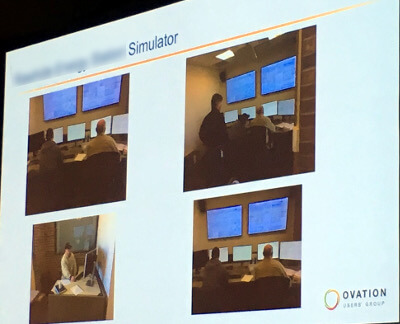 At the 2017 Ovation Users Group conference, there was a presentation by an electrical power producer on driving cultural change and operational excellence through the use of simulation in the Ovation distributed control system. The facility had a 92% capacity factor so it was basically running all the time.
At the 2017 Ovation Users Group conference, there was a presentation by an electrical power producer on driving cultural change and operational excellence through the use of simulation in the Ovation distributed control system. The facility had a 92% capacity factor so it was basically running all the time.
The facility was challenged with aging workers and losing valuable experience. They decided to commit to a formal training process and creating a simulation environment which could trip the facility thousands of times to teach operations personnel how to operate and recover the plant from a trip condition.
Other advantages that came with the simulation include performing patches to verify nothing would break before applying to the live control system. Control strategy improvements could be developed and tested in the simulation environment to verify their performance before committing them to the live system. Changes could range from tuning parameters on individual loops to changes in unit operations.
From a user interface perspective, changes could be performed and tested to verify that they improved operations before committing to live system.
From an operational perspective, training is the key benefit. Most operators do not the time and repetition they need on the live system. Scenarios can be developed and trained to grow the experience and confidence of the operators. For new operators coming on board, this is a key part of ramping up the learning curve.
They documented a 44% reduction in startup and shutdown times after implementing the simulator project. This translates directly into the financial returns of the facility.
From a cultural change perspective, developing a spirit of operational excellence required commitment from all levels of the facility. The simulator helped foster a spirit of self-improvement and helps to assure that the operational procedures were closely followed. The whole project from initial planning through commissioning was around 16 months.




